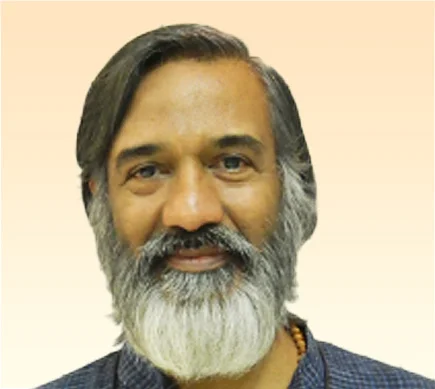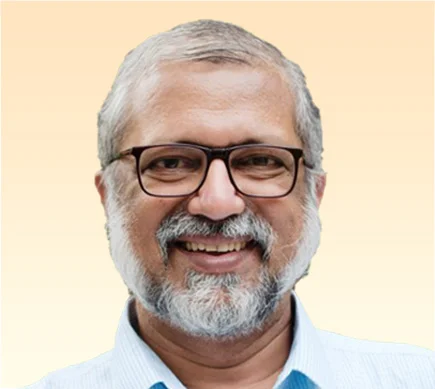Water
Citizen-centric sustainable development programme for Water, Sanitation, Food & Agriculture, Livelihoods and Bio-diversity Security UNDP Grant (Direct engagement with communities) Govt. of Tamil Nadu, Maharashtra & Odisha
2014-15
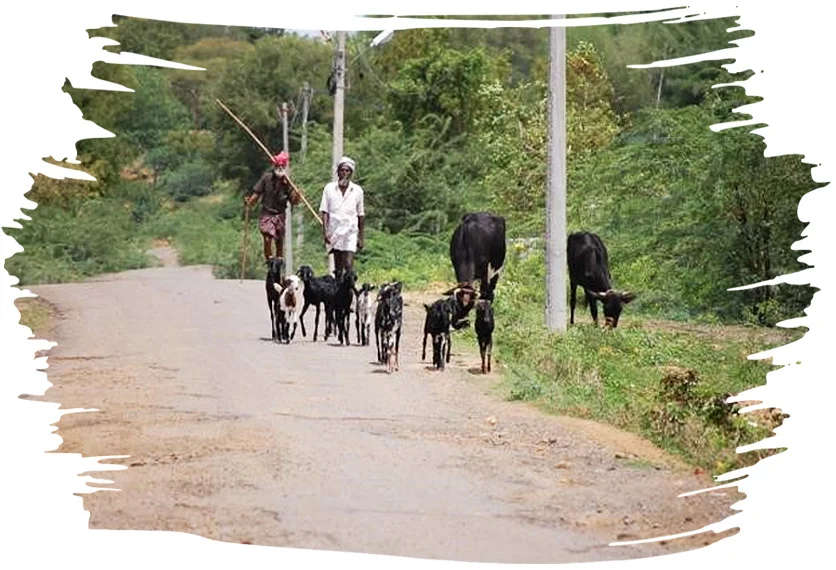
A study of 6 `success’ village panchayats in different parts of Tamil Nadu which were part of the TWAD –TNRWSP change management programme, `Total Community Water Management’ (TCWM), 2004-08 was undertaken with financial support from UNICEF. The study sought to examine the process of internalisation of changed governance practices and extent of institutionalisation of good governance practices both by the community as also the water management agency itself.
This idea for this study was born out of a stray query raised at an internal discussion amongst the Barefoot Academy of Governance (BA) team when reviewing our work on governance reform in the drinking water sector in Tamil Nadu.
Advocating for Basin-level Water Management via engineers of 9 Water-related Departments IAMWARM Project, Govt. of Tamil Nadu
2007-08
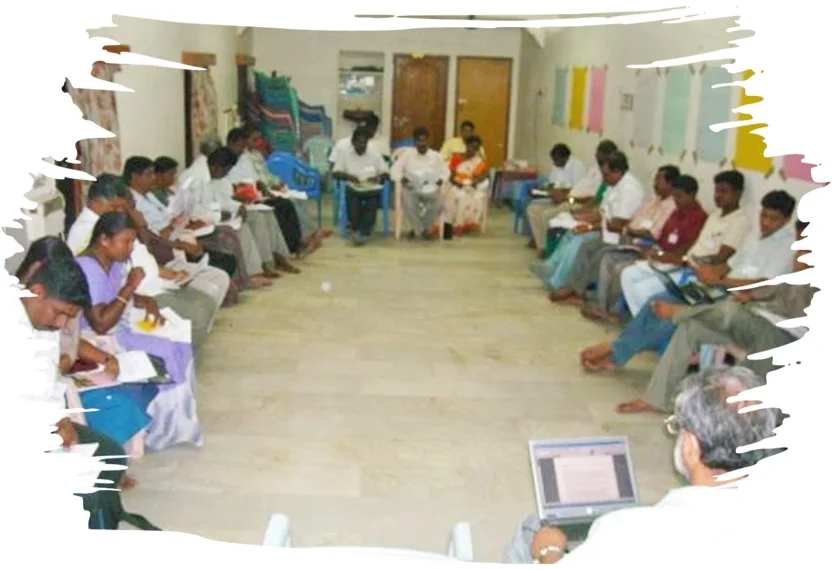
Outcomes:
- Visible Camaraderie between l Heads, Engineers and Communities
- Multi Department Co-ordinated initiatives in water and food security
- Increased community participation in water allocation and utilisation
- Increased crop yields with lower water use, equity in water distribution
- Additional Outcomes – Voluntary and Self Driven
Improving Organisational Efficiency and Democratisation of Service Delivery (Jal Swaraj) Govt. of Tamil Nadu
2003-2008
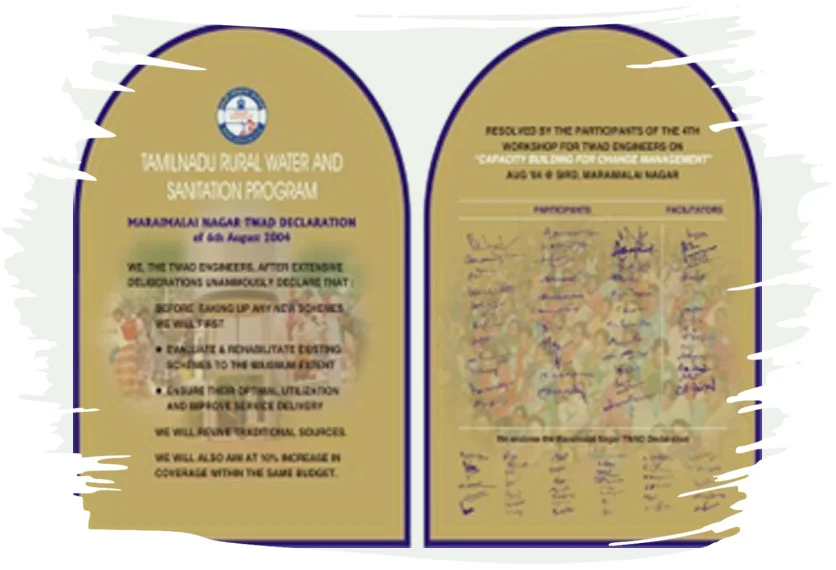
The long term intervention with the providers of water, both drinking water and in the water resources sector, witnessed an upward spiral of consciousness of the rights of the communities that they were mandated to serve. The thought trend moved from providing safe water then secure water to promoting and subsequently partnering with the communities at the bottom of the pyramid not merely to ensure secure safe water for all but going a step further to the collective conservation of nature as the guarantee of future water.
Outcomes:
- Striking Cost Reduction in Rural Water Supply through Planning
- Enhanced water security through revival of traditional water bodies
- Strong Involvement of Dalit and Women in Supply Management
- Increase in local contribution to costs & reduction in water wastage
- Growth of Rural Sanitation through Women’s Water User Committees
- Strong Engineer & Rural & Dalit Women Partnerships for Water Security
